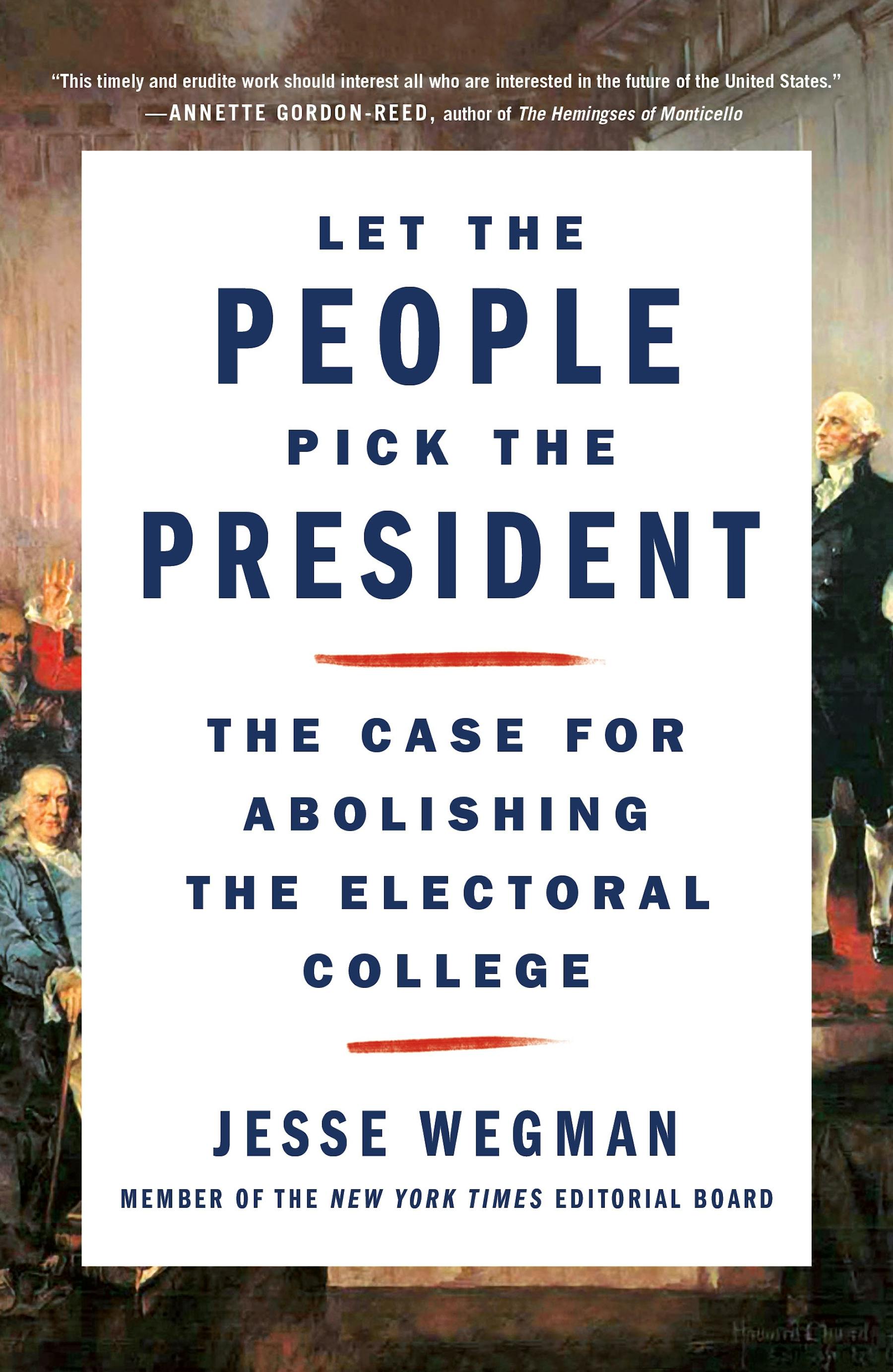Sean Illing
We know the process of passing it was flawed. We know it was the product of brutal compromises. But has the Electoral College ever operated the way it was intended to operate?
Jesse Wegman
No — with the possible exception of the first two elections when George Washington was on the ticket. But after that, we basically had electors who were not operating in what the framers thought of as the best interests of the country. The electors were just party hacks. That was clear by 1796, and it’s just as clear today. The electors have never been these disinterested, neutral, wise men the founders imagined.
Sean Illing
Why have all the attempts to reform or abolish the Electoral College failed?
Jesse Wegman
I think that the most common reason is because one or both political parties have seen themselves as benefiting from it in some way. So it’s almost always a short-term political calculus that keeps the college alive. It’s very rare that it’s about anything relating to democratic principles or some notion of what’s fair or just. No one thinks the Electoral College was a brilliant constitutional invention, but it’s been preserved over the years for political reasons.
Sean Illing
Okay, but the dynamics have changed, right? Now the Electoral College benefits the Republican Party almost exclusively.
Jesse Wegman
You’re right that the college has typically leaned toward one party or the other — that was true in 2016 and almost certainly true for 2020. But I’d also say that it’s harder than we think to say that definitively in advance of an election.
Republicans won the 2004 election, but the Electoral College actually gave the Democrats a boost. If 60,000 votes went the other way in Ohio, George W. Bush would have won the national popular vote by 3 million votes, but John Kerry would’ve been elected. So the advantages aren’t so fixed.
But yes, I concede the point you’re making: Right now, the Electoral College benefits Republicans pretty clearly, and a split election is much, much more likely to go the Republican candidate.
Sean Illing
A lot of people who hear these sorts of objections to the Electoral College think it’s just sour grapes from liberals who don’t like the current outcome of the system. How do you respond to that?
Jesse Wegman
I’m as upset as anybody who experienced their preferred candidate winning more votes and not being elected. I think it violates our basic sense of what majority rule means. All I would say to those people is, look at Trump’s tweet in 2012 arguing that the Electoral College is a disaster for democracy. The circumstances of that tweet is that on Election Night 2012, early exit polling was suggesting that Mitt Romney might win the popular vote and lose the Electoral College to Obama. So the mere possibility that that could happen triggered Trump’s tweet, and all I’ll say is that I sympathize.
